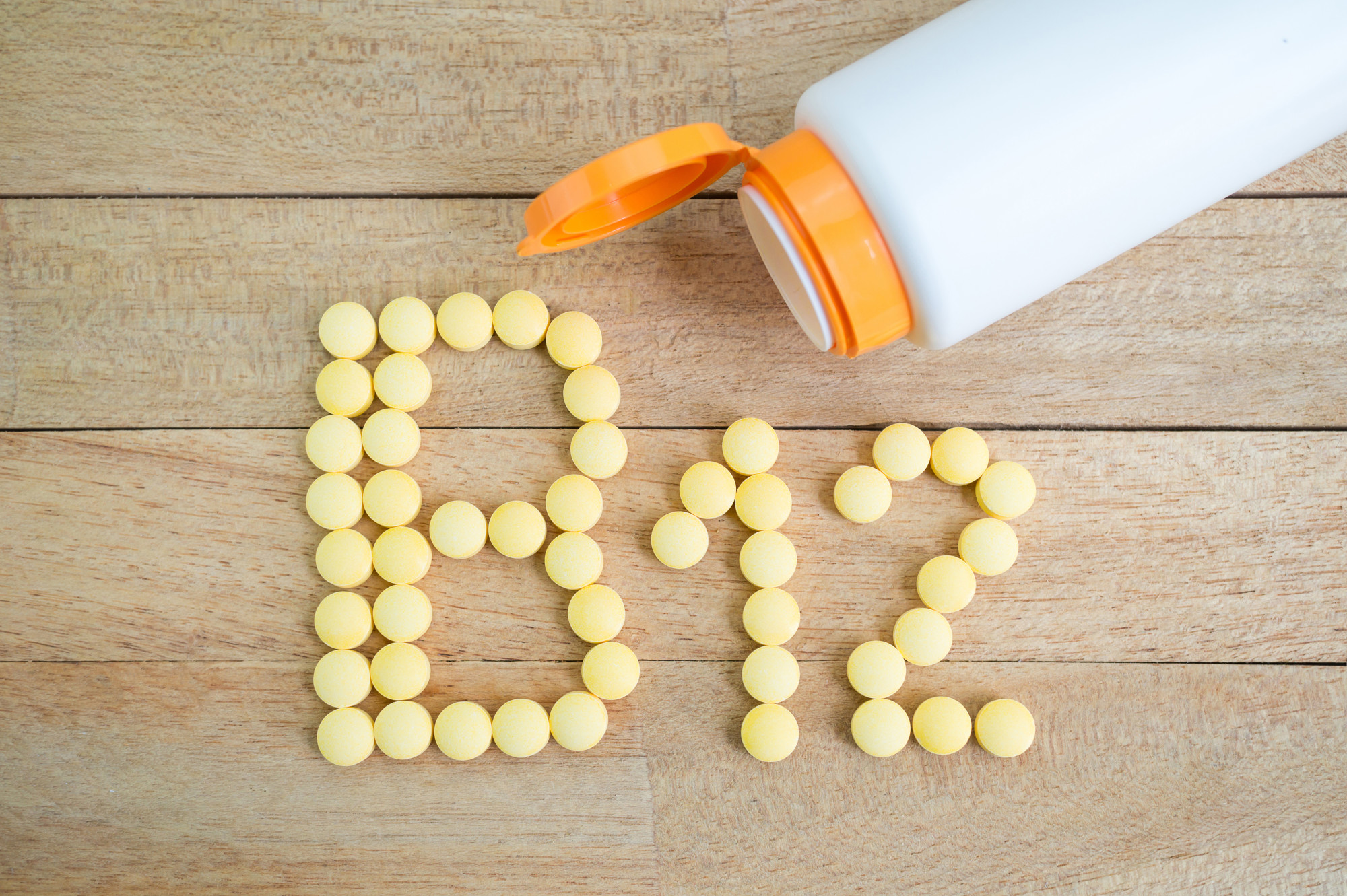Are you having trouble walking, experiencing severe joint pain, or noticing you’re often short of breath?
Maybe you’re experiencing paranoia, delusions, and memory loss. While you might blame it on your old age, a vitamin might be the real culprit.
An estimated 3.2% of adults over the age of 50 are low in vitamin B12. Up to 20% of seniors could have a vitamin B12 deficiency.
As a result, you could end up experiencing some of the side effects mentioned above—and then some!
What is the exact vitamin B12 dosage for seniors? How can you make sure you’re getting enough B12 in your daily diet? Keep reading to find out.
In this guide, we’ll discuss the B12 requirements for seniors, where you can find the vitamin, and more!
B12 Requirements for Seniors
First, let’s talk about the recommended vitamin B12 dosage for seniors.
The Office of Dietary Supplements suggests results receive at least 2.4 mcg a day. However, certain age groups, including seniors, have a difficult time getting the B12 they need. In fact, your body might even have a difficult time absorbing the B12 you do consume.
For example, many seniors don’t have enough hydrochloric acid in their stomachs to absorb B12 found in food. As a result, it’s best to consume fortified foods or dietary supplements to get the B12 you need.
Patients with pernicious anemia have a difficult time absorbing B12, too. Their bodies often lack the intrinsic factor needed to absorb the vitamin. For these patients, many doctors suggest vitamin B12 injections along with high oral dosages.
If you’ve undergone gastrointestinal (weight loss) surgery or have a digestive disorder, your body might also have a difficult time absorbing B12. Common digestive disorders that cause this issue include Crohn’s disease and celiac disease.
You might also want to reconsider your dietary lifestyle. B12 is usually found in animal foods. As a result, people who don’t eat animal foods (vegetarians and vegans) lack the B12 they need from their diet.
Signs of B12 Deficiency
What happens if you don’t consume the recommended vitamin B12 dosage for seniors? You could experience vitamin B12 deficiency symptoms, including:
- Balance issues
- Depression
- Nerve problems (numbness and tingling)
- Dementia
- Confusion
- Constipation
- Weakness
- Tiredness
- Loss of appetite
- Weight loss
- Megaloblastic anemia
- Memory problems
Speak with your doctor if you begin experiencing any of these issues. Even if you don’t have anemia, neglecting the B12 dosage for seniors could cause nervous system damage. With that in mind, it’s important to add B12 to your diet as soon as possible.
Why Are Seniors at Higher Risk?
When you ingest B12-rich foods or supplements, your stomach and small intestine rely on acids and enzymes to break the vitamin down. Then, your small intestine absorbs the B12. Your body usually stores the vitamin in your liver.
The B12 that’s stored away in your vitamin could benefit your body over the course of years.
As we age, however, our bodies lose the ability to absorb B12. Even if you’re meeting the B12 requirements for seniors at 2.4 mcg daily, it’s possible your body isn’t using the B12 it receives. Digestive issues are common as we age, which makes it more difficult for our bodies to produce the necessary enzymes and acids.
In fact, many of the medications seniors take can weaken the stomach lining. This could cause your stomach to produce less of the stomach acid necessary for vitamin absorption. As a result, more seniors tend to experience vitamin B12 deficiency.
Unfortunately, many of the symptoms associated with B12 deficiency are common with aging. With that in mind, it’s important to have a doctor complete blood work testing to determine if you’re B12 deficient.
Vitamin B12 deficiency is easy to treat. Making sure you consume the recommended B12 dosage for seniors can help you avoid damage that’s otherwise non-reversible.
What Does B12 Do?
Vitamin B12 is responsible for a number of bodily processes, including:
- DNA formation
- Nerve function
- Metabolism
- Red blood cell production
- Reducing homocysteine levels
Homocysteine is an amino acid that’s linked to Alzheimer’s, stroke, and heart disease. Taking vitamin B12 can reduce your risk of these conditions.
Many people begin taking additional B12 to improve their energy levels. Others take it to improve their memory and mood levels. However, there isn’t enough evidence to support these benefits.
Consuming B12
Vitamin B12 is found in a range of animal products and some fortified foods. Plant foods, on the other hand, don’t contain B12 unless they’re fortified. You can meet the recommended B12 dosage for seniors by eating a variety of:
- Fortified breakfast cereals
- Fish (salmon, trout, tuna, haddock)
- Meat (beef, ham, beef liver)
- Poultry (chicken breast)
- Eggs
- Milk and other dairy products
However, beef liver and clams have the highest levels of vitamin B12. Adding these foods to your regular diet can help you meet the B12 requirements for seniors. If you’re at a higher risk of B12 deficiency, you might want to speak with a doctor about B12 injects or supplements, too.
Interactions
In some cases, consuming the proper B12 dosage for seniors could interfere with medications you’re already taking. There are a few medications that could impact your B12 use and absorption.
For example, you might take Metformin to treat your diabetes. Proton pump inhibitors, which are used to treat acid reflux and peptic ulcer disease, might also interfere with your B12. These include omeprazole and lansoprazole.
Some patients take Histamine H2 receptor antagonists to treat peptic ulcer disease instead. These include famotidine, ranitidine, and cimetidine.
If you’re taking any of these medications, don’t rush to add more B12 to your diet. Instead, make sure to speak with your doctor before you increase your B12 intake.
Vitamin B12 Dosage for Seniors: Your Guide to Avoiding B12 Deficiency
Don’t let vitamin B12 deficiency steal your energy and wear you down. Instead, consult a doctor to make sure you’re meeting the recommended vitamin B12 dosage for seniors. By receiving enough B12 each day, you can keep your energy levels up and avoid harmful health conditions in the future.
Searching for more helpful health tips? Explore the diet and nutrition section of the blog today!




